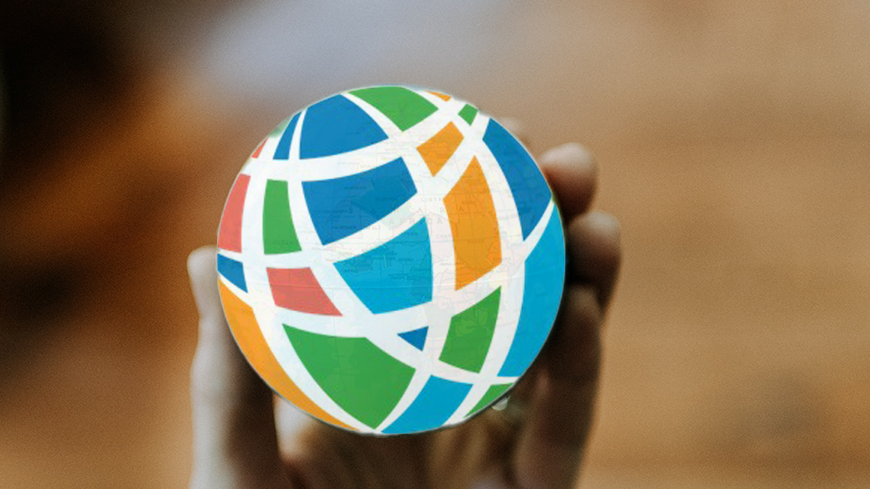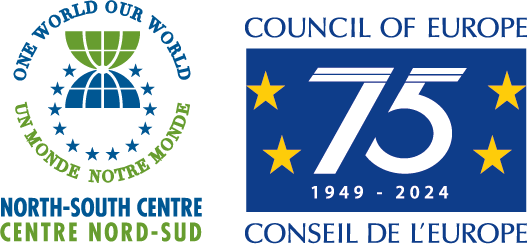Over 300 000 participants yearly join in the iLEGEND’s Global Education Week, taking place the third week of November and involving thousands of activities around Global Citizenship Education, Sustainable Development Goals and everyone’s co-responsibility to achieve them. The Global Education Week is organised by the North-South Centre of the Council of Europe together with the Global Education Network1.
This year, from 18 to 24 November, the actions will focus on two of the five pillars of the Agenda 2030 (People, Planet, Prosperity, Peace and Partnership). The slogan of this edition is: “Connected People for an Inclusive Planet”. Nevertheless, any activity that contributes to any of the five pillars can be part of the event. More information about the new edition and participating countries will be uploaded from September on the North-South Centre website: www.nscentre.org
In the meantime, join us! Save the date and / or start thinking about what you can do in the frame of the Global Education Week 2024! Educators, students, civil society organisations, government agencies, educational institutions, communities around the globe are invited to engage in activities and initiatives linked to:
- Environmental Education: Educators and students can emphasise the importance of environmental education, highlighting the need for sustainable practices, conservation, the protection of natural resources, and the link between human rights and environment. This can include activities such as nature walks, recycling programs, and discussions on climate change and human rights.
- Sustainability Education: Educators and students can emphasise the importance of teaching for sustainable development, addressing youth participation, gender equality, racism and intolerance, freedom of expression, integrating perspectives from other cultures, collective responsibility, and solidarity to protect the planet and people. Schools can organise presentations, debates that focus on understanding different cultures, addressing global interdependence and global education as a tool to (re-)connect people for an inclusive planet.
- Sustainable Development Goals: The Sustainable Development Goals, established by the United Nations, provide a framework for creating a sustainable and peaceful world. Global Education Week can serve as an opportunity to explore the SDGs and provide information about the importance of achieving them. Making the link between global issue and local action can be done through series of activities such as sharing of knowledge, experiences, and resources between different communities facing similar global challenges. This can include hosting conferences, online forums, or networking events to connect individuals and organisations working towards common goals.
- Democratic culture: Education policy makers and practitioners in all sectors of education systems can use the The Reference Framework of Competences for Democratic Culture (RFCDC) to equip young people with all of the competences that are needed to take action to defend and promote human rights, democracy and the rule of law, to participate effectively in a culture of democracy, and to live peacefully together with others in culturally diverse societies.
- Global Citizenship: Encouraging global citizenship helps each of us to recognise our responsibilities as global citizens. It promotes a sense of interconnectedness with people from different cultures and backgrounds. Activities can include cultural festivals and talks on global issues and our collective responsibility to solve them. It can be about promoting interactions among communities in the same city, organising a lunch with migrants and refugees…
- Community Engagement: Global Education Week can be the occasion to involve the local community in efforts towards interconnected people and environmental sustainability. This can include organising campaigns, tree planting activities, or partnering with local organisations working towards environmental conservation and human rights.
- And much more !
If you need further inspiration, you can consult the pages of the previous editions:
- Global Education Week 2023
- Global Education Week 2022
- Global Education Week 2021
- Global Education Week 2020
If you have an idea for activities to implement or want more information about the week in at national level, contact your national coordinator.
Whether you choose to join an existing event or organise your own, your participation will contribute to raising awareness about Global Education and its role in making the change you would like to see in the world.
1. The Global Education Week is a world-wide campaign implemented by the North-South Centre of the Council of Europe and the Global Education Network in the framework of the iLEGEND III, a joint programme of the European Union and the Council of Europe: co-funded by the European Union and the Council of Europe. It aims to raise awareness on Global Education as a tool for solidarity and change and contribute for a more sustainable, peaceful and equitable world.
The activities organised in the framework of Global Education Week are the sole responsibility of the implementing partners and entities and do not necessarily reflect the views of the European Union or the Council of Europe.









